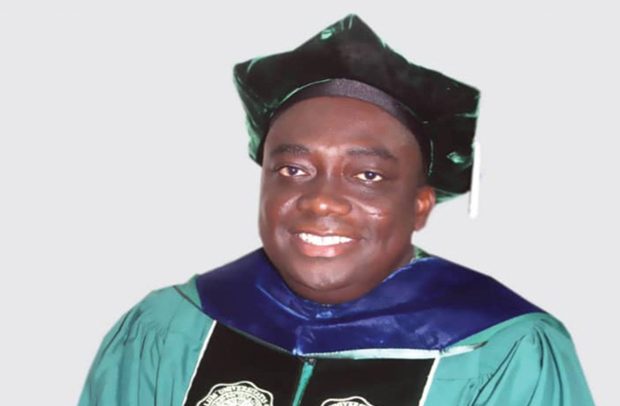Dr. Boakye-Yiadom
Director-General of the Institute for Educational Planning and Administration at the University of Cape Coast (UCC), Dr. Michael Boakye-Yiadom, has stated that learning outcomes have improved despite the introduction of the Free Senior High School (SHS), which has increased enrolment.
His reflections on our educational system contradict the assertion by Prof. Ato Essuman, Chairman of the West African Examination Council (WAEC), who recently stated that the debate over free secondary education is primarily about access and not enough about the content and outcomes anticipated.
The chairman claimed the government rushed the policy implementation because it was a political project, intimating that a phased adoption of the Free SHS policy would have been preferable.
However, the UCC don believes available data does not support the assertions of Prof. Essuman, insisting that learning outcomes have improved.
“Our assertions must be based on available data to measure whether the programme has been good or not. Indeed, Free School High School is a political manifesto that later became a government policy. So the political dimension is there, which one can’t take away from the policy,” Boakye-Yiadom noted.
Speaking on Accra-based Okay FM, he said what is essential is to find out the benefits of Free Senior High School and possibly the inherent challenges in order to address them for the benefit of Ghanaian children.
He argued that while it is well documented that growing access can lead to a decline in educational quality around the world, the situation in Ghana is different.
Dr. Boakye-Yiadom admitted that if senior high school enrolment is increased without intervening measures, education quality will suffer, and learning results will deteriorate.
“What happened to the Ghana case? The government’s implementation of a free senior high school introduced a double-track scheme. Naturally, increased enrolment has a corresponding impact on classroom population, but the double-track system eliminated that,” he asserted.
“Instead of having 200 students in a class because of increased enrolment, it will come down to 100 because of the double-track system. As a result, class sizes will not become excessively large as enrolment grows. And when the class size is not too large, it facilitates the learning process,” he added.
Dr. Boakye-Yiadom further added that the Free SHS policy, which made second cycle education free, has eliminated the situation where students are sent away for nonpayment of school fees.
“This has also relieved students and parents of the burden of owing school fees and other related expenses. This was yet another move by the government,” the university don intimated.
According to him, the government also introduced stipends for teachers who engage in additional teaching because some students may not be as bright as others, noting, “This is another measure that eliminates extra tuition.”
“The government gave free textbooks in English, Mathematics, Social Studies, and Integrated Science, all core subjects. Some time ago, the government also provided students with past questions to help them prepare for the WAEC exam. This also helped to maintain the quality of education and learning outcomes.
“Day students are provided with free lunch, which encourages them to remain on campus and learn. All of these interventions contributed to assuring that the increase in enrolment has minimal impact on students’ learning outcomes,” he said.
Dr. Boakye-Yiadom said there is data to back all his assertions, indicating that, “students placed in SHS from basic schools in 2009 were 1.2 million, representing 36 per cent. From 2017 to 2019, students placed in SHS from basic schools increased by 1.2 million, representing 6.2 per cent.
“It is indicative that enrolment has increased, but what occurred in the core subjects for which the government provided free textbooks? What is the level of performance? The performance in the core courses improved in 2020 and 2021,” he opined.
“For English, A1-C6, the success rate in 2020 was 57.3 per cent, 54.08 per cent in 2021, and 60 per cent in 2022.
“In Social Studies, 2022 registered 56 per cent, while 2021 had 71 per cent; in Core Mathematics, 2021 registered 54 per cent, while 2022 had 51 per cent,” he disclosed.
“The Core Subjects are examined by WAEC, and the students’ pass rate increased even after enrolment increased. According to WAEC data, students’ learning outcomes did not worsen as a result of the Free SHS enrolment increase,” Dr. Boakye-Yiadom concluded.
By Ernest Kofi Adu


